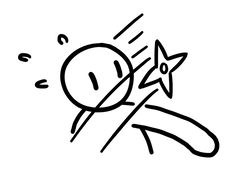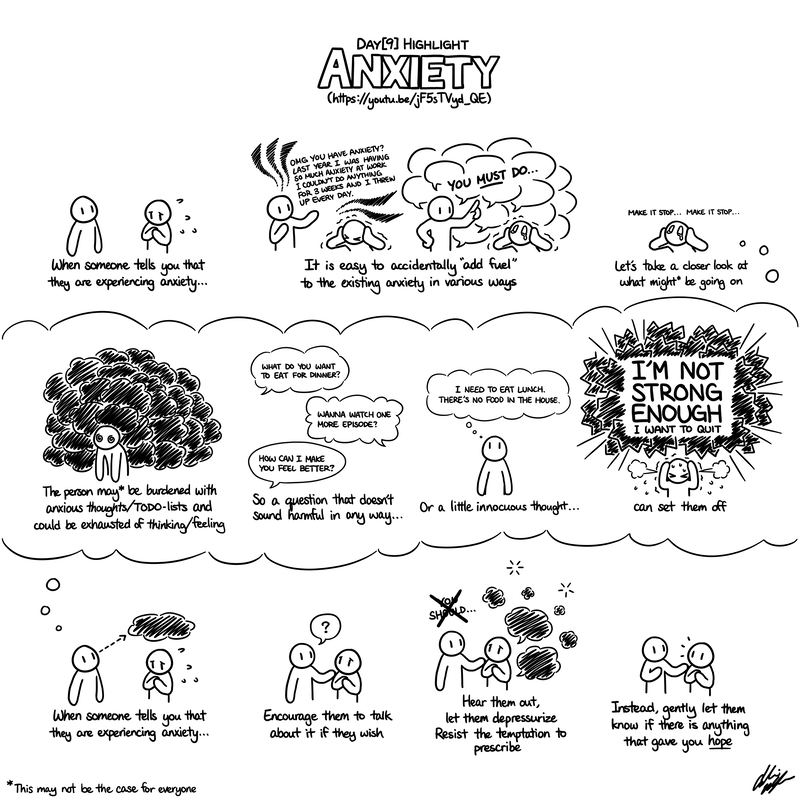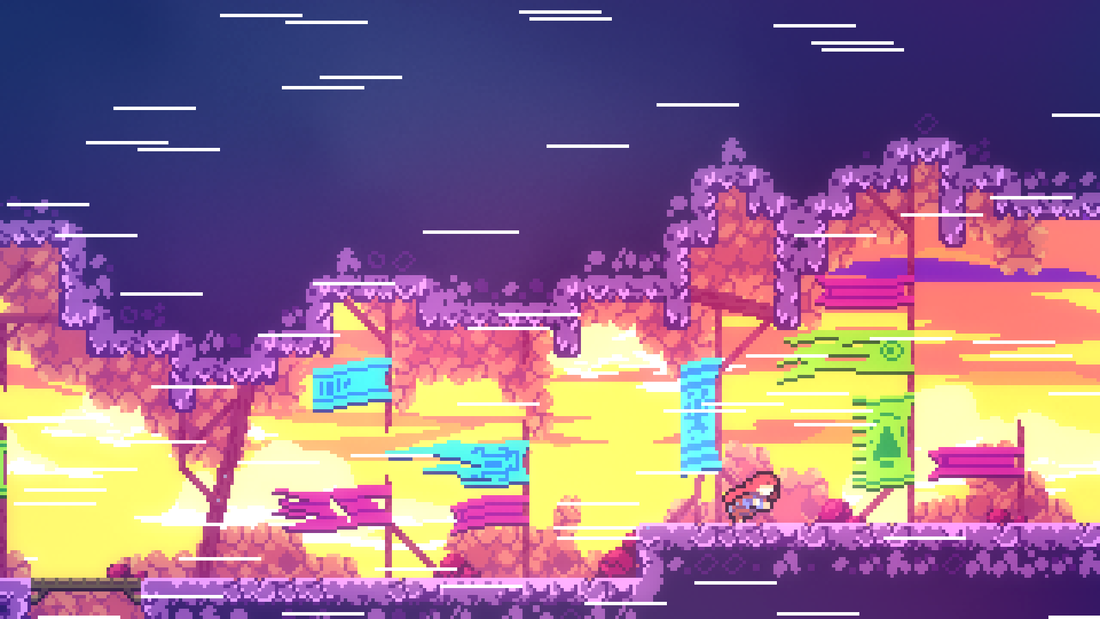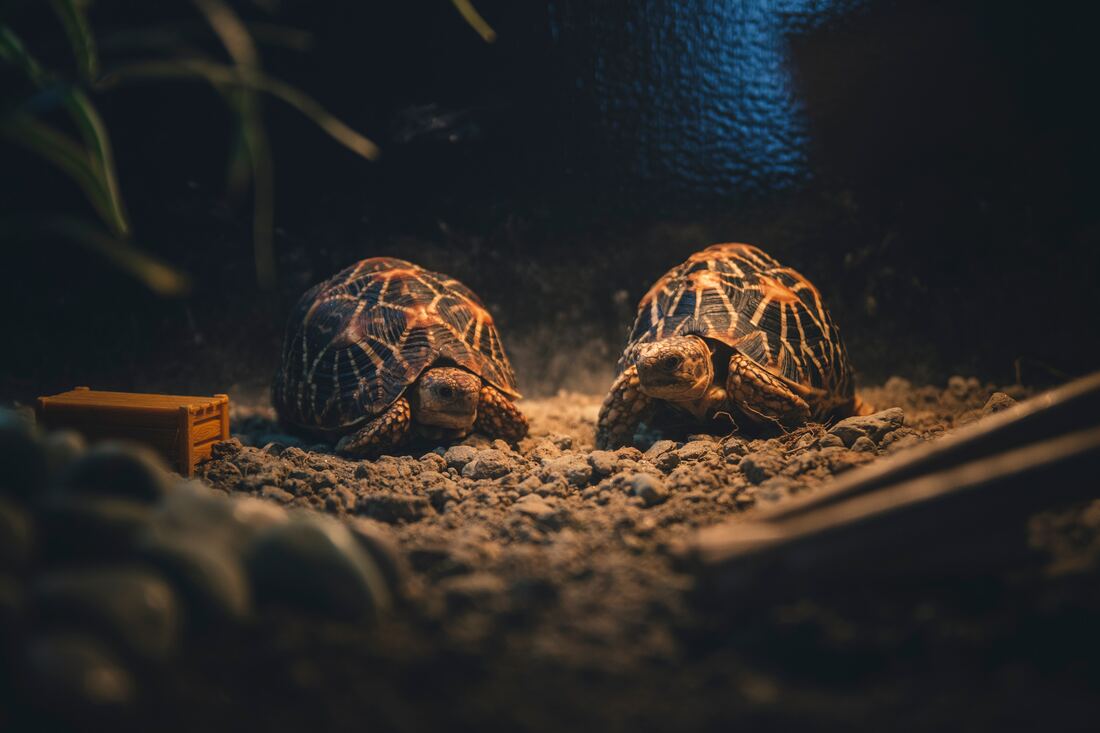|
How have you been? How are you feeling? For the past few months, I've been working on improving habits such as remembering to have a few mindful moments every day. I think these habits are good for mending the mental "wounds" I acquire throughout the day from negative emotions, i.e. ninja stars (if you do not know what I mean by the ninja stars analogy, check out the "Kittens and Ninja Stars" post or even better yet, go to the source and watch the video). About a month ago, I decided that it is the appropriate time for me to figure out if there is a way to dodge some of the ninja stars so that I don't get wounded in the first place. In stress management I think they call them "triggering events" or something but I'm using the ninja stars terminology because I don't get to use the word ninja star that often, and I personally feel like the word "trigger" is a word that is too strong for me to use in this context. This post is LONG, and will cover the following:
0 Comments
(Originally posted on the DK30 project page)
"Anxiety" was a topic that hit very close to home so I decided to draw it as a tribute. Making this turned out to be more challenging than expected - after finishing my initial draft, my final design ended up deviating quite a lot from it so it took an extra day for me to complete. It took a while for me to settle on how to visualize the ruminating thoughts (in the form of thought bubbles that look like dark clouds). I am satisfied with how it turned out - especially when the thoughts turn into more vicious ones and become spiky and explode-y. I (finally) started playing the game Celeste recently, and completed Chapter 8 (haven't done the B and C-sides yet).
Since this post does address the main story, if you have not played this game and you wish to avoid spoilers, do not read past this point! (Play it first!) A few weeks ago, I was on vacation... thinking about what makes a vacation a vacation.
I don't know what it's like for you, but lately I've been running into a bunch of articles that say something along the lines of: "The secret to a happy life is to treat your weekends not just as 'days you don't work' but more like a 'vacation'!" which got me thinking a bit. I haven't had a really nice vacation in a while. Not too long ago, I've been on vacation where my phone would not stop buzzing (unfortunately my work didn't have a work phone vs. personal phone distinction so all the work texts came to my personal cellphone. And this was during my 5th year anniversary trip with my partner). It was frightening to even imagine the number of work message notifications on my phone. More recently, I've been on vacation where the fear of missing out kicked in and I was frightened for almost the entire time - despite the fact that there was not a ton of work accumulating while I was gone. So when I think of "vacation" my mind defaults to: "Oh, you mean that dread?" What made me look forward to the holidays before I started dreading them? I decided to jot down a list of things that bring me joy (and this will continue to grow as I remember more things and discover things that I like):
Did your vacation turn into something to dread before? What brings you joy? I failed to write for the last few Saturdays because I had underestimated how much effort it takes to adjust to a new job (^__^;) Now that it has been over 1 month since I started, I can say that I have mostly adjusted.
One of the things I've been (re-)adjusting to is the speed in which things happen, and I am astounded by how different the pace of life is in an academic setting vs. a small not-for-profit-scaling-up setting. In academia (especially in large institutions), things happen very slowly - some things happen over the course of weeks, other things take years. When I used to work in academia (2 jobs ago, as someone who had been running and managing visual analytics workshops) I found this process painful, but there were some things about that slowness that I now appreciate being back in academia:
If you are a gamer, here's a question for you: what actions you like to do most in a video game? For example - if you were playing Mario, are you the kind of person who stomps on every enemy you can stomp on? (I do this all the time.) Or are you the kind of person who runs off every edge to see if there's a hidden secret? (My partner does this all the time.) Recently, I discovered something else I had been doing all the time in video games that I haven't thought about before (even after playing video games for decades): I pause and/or open the menu. I pause in City Skylines. I pause in Project Highrise. I pause in Stardew Valley. I pause in RimWorld. I pause in Two Point Hospital. What do I typically do when I pause? First, I breathe. Then, I plan. Where do I want my commercial zones in relation to my industrial and residential zones in my city? Where do I want to put my restaurants in a building so that I won't get complaints from other tenants? How do I want to arrange my farm plots and sprinklers so that my one scarecrow can protect all the crops? How do I arrange all the rooms so that my colonists don't get upset because they "ate without a table"? Which nurses should I put in the different treatment rooms to maximize the treatment success rate?
I don't like it when I can't pause when I'm in a multiplayer game. I really don't like timed battles. I especially panic in those situations when you need to escape from a castle that's going to burn down in 3 minutes or something and the timer is ticking and you open the menu to pause but you notice that THE TIMER IS STILL TICKING. It dawned on me that I've been "racing against the timer" for the past couple years (e.g. a surprise deadline in 3 hours on something I have not worked on or even seen before), and that was one of the reasons why I was not feeling well overall. Of course I can't pause real life like the way I can pause in a video game, but I noticed that following my wanting-to-pause-and-plan instinct to be healthy for me. Do you like pausing? Or do you prefer real-time? For the longest time, I was terrified of uncertainty. (Maybe I still am.) So I ran away from it. I didn't even want to look at it from the corner of my eye. I was so afraid of uncertainty and taking responsibility for my own choices that I willingly relinquished my power to choose; I planted myself on rails and just went wherever the rails took me. And when opportunities presented themselves, I took them all because what if I said no? Then what would I be doing instead? Consequentially, I took on whatever came my direction. My mind became really cluttered, and eventually I started to suffocate. I was overwhelmed to the point where it was damaging myself and my relationship with my loved ones - there was a time when I dreaded waking up in the morning. There were nights when I hoped I can fall asleep and never wake up. Earlier this year, I started exercising that choice "muscle" because it had atrophied so much over the years (and led to somewhat alarming consequences). I joined a choir. I became a board member. I gave notice to my current employer. That was when this phone conversation happened: "You're leaving?" "Yeah." "Where are you going?" "I don't know yet." That's right, I don't know yet. For the first time in my life, not knowing what I was going to do in the future (yes, uncertainty) felt FANTASTIC. I always had the impression that the what-am-I-gonna-do uncertainty was a void - a cold, dark, scary place. But when I had that phone call I realized that I didn't see the uncertainty as a void anymore. It looked more like this: It turns out that I now do know where I'm heading but I will treasure that feeling, that sense of mental space that I felt when I said I don't know yet.
In the past, I've experienced quite a few times where I'm anxiety-stricken because someone else is getting punished. There's stress coming from all directions - frustrations and fear from both the punisher and the punished, and those emotions are very sticky. It's like having paint splattered everywhere, and once it gets onto me it takes a lot of time and effort to wash away.
Usually, when people notice that I'm anxious, they say the following: "You're doing well." Although I believe the people who say this mean well, it doesn't improve my anxiety at all. What am I being compared against? The person who just got yelled at? To me, even if I'm performing "well" if the rest of the organization is shaken - if employees are getting fired, if the employees who didn't are quivering thinking "am I next?" and if everyone is frustrated and fearful, I can't separate myself from that. I am part of the organization after all, and I care about the wellness of the organization as a whole compared to myself only. Are we doing well? "You need to compartmentalize" is also something people told me in the past. After giving this some thought for a few years though, I have decided to not follow this suggestion. Yes, it will be emotionally overwhelming. But the connection between the self and the organization is something that feels natural to me. It's like looking at a biological organism. Sure, you can look at each organ as its own separate entity - the brain, the heart, the lungs, the liver... but they're all part of the same organism. And when one organ is unhappy that could very well affect all the other organs because they can talk to each other. Even if the system is not biological, like a machine or a program, I think the same thing still holds. If one part of the machine is damaged, or if one part of the program has a bug, that's probably going to affect the output. I'm not saying that the notion to separate the self from the organization is wrong. It's merely not my cup of tea. I do find the differences in the way we think interesting though, and I am curious to know how the differences emerge through the different experiences that shape us. (For me, I suspect that the COGS program played an instrumental role.) |
AuthorI'm Candice and I doodle with the intensity of the doomguy. Categories
All
Archives
March 2021
|










